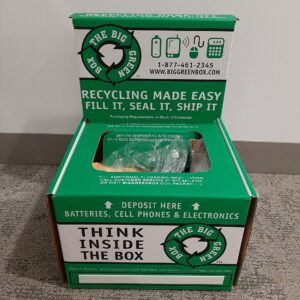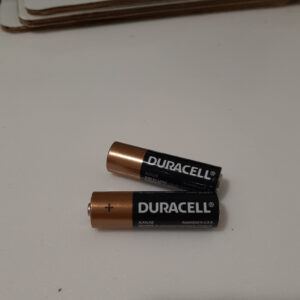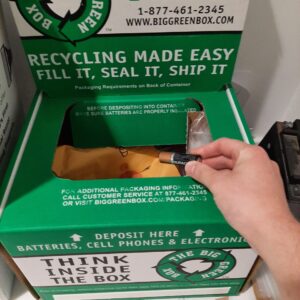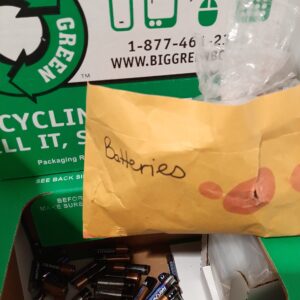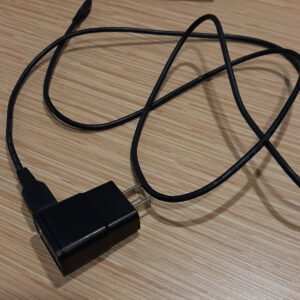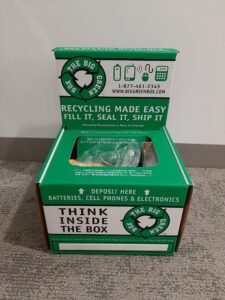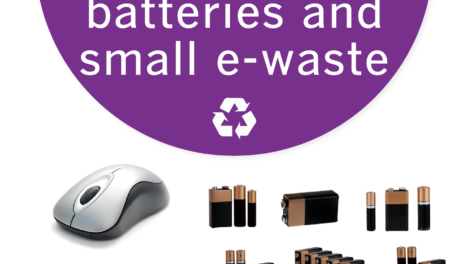What types of batteries are accepted?
- All batteries found in consumer products (cell phones, laptops, power tools, etc.)
- Lithium, lead acid, and all batteries over 9 volts must be insulated to prevent short circuits
- This can be done by placing the batteries into individual Ziploc plastic bags (can be found at recycling stations)
- Multiple batteries of these types can be placed into a single bag only if the exposed terminals are covered with tape
What types of batteries are not accepted?
- Batteries containing free-flowing electrolyte (automotive/motorcycle batteries)
- Low production run and prototype batteries
- Any damaged or defective battery
- Batteries that are beyond these limits:
- Lithium metal (non-rechargeable) = 25 grams of lithium content per batter
- Lithium ion (rechargeable) = rated capacity of 300 watt-hours per battery
- Lead acid (non-spillable) = gross weight of 11 pounds per battery
- If you need to dispose of a battery in any of these categories, contact public-safety-ehs.group@lafayette.edu to recycle through an alternate process
Where do I put batteries?
How can a department obtain and return a bin?
- Getting a bin
- Returning a bin
- Make sure the bin does not violate the below restrictions
- Lithium, lead acid, and batteries over 9 volts must be insulated by being placed in a plastic bag
- If multiple batteries are in a plastic bag, their terminals must be taped
- The box cannot exceed a weight of 43 lbs
- Lithium, lead acid, and batteries over 9 volts must be insulated by being placed in a plastic bag
- Seal the box (instructions can be found on the box)
- Drop the box off at the FedEx pickup location on Hamilton Street or take it to the campus post office
- Make sure the bin does not violate the below restrictions
Where can I go for more information?
Can I bring in batteries from home to recycle?
Our battery recycling program is intended for batteries from campus.
